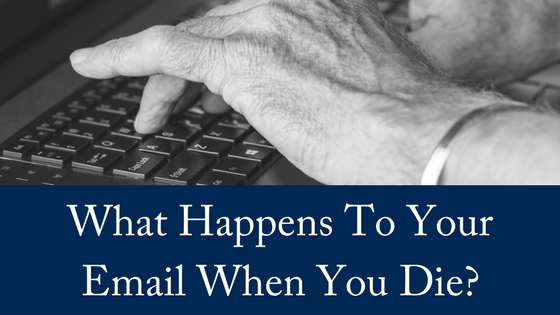As we live out more of our lives in the online realm, there are also implications for estate planning: what happens to our email when we die? Do you want your loved ones reading your email? What if you have important information located within your email account?
How America is Dealing with the Email Issue
Yahoo is asking the U.S. Supreme Court to definitively declare what happens to our emails when we die and overturn a Massachusetts high court decision finding that federal law doesn’t bar disclosing the digital communications to representatives of someone’s estate.
“The Supreme Judicial Court’s decision effectively eliminates personal privacy in email content after death by giving estate administrators complete control over those private communications,” wrote Marc Zwillinger, an attorney for Yahoo, in the petition he filed to the Supreme Court.
The underlying case concerns John Ajemian, who died in a bike accident in 2006 at the age of 43. He had no will, and his siblings have since been fighting to get the contents of Ajemian’s email account.
But Yahoo maintains it does not have to turn over the communications under federal law. It has asked the Supreme Court to grant certiorari, hear the case “and resolve the uncertainty.”
“The SJC’s decision effectively revokes the privacy rights of users in their email content … the moment they die,” Zwillinger wrote. “Instead, complete control to publish or keep the emails confidential shifts to the estate administrator, who could be a trusted family friend or a complete stranger to the decedent.”
 Do You Have Email with the Big Providers?
Do You Have Email with the Big Providers?
Web email services owned by internet giants Google and Microsoft have a policy of keeping your data after you die and letting your next of kin or the executor of your estate access it.
There is no way for users to flag that they don’t want this to happen and no recourse under Australia’s existing privacy laws.
When it comes to deleting the data, Microsoft’s Hotmail will remove an account if it is inactive for 270 days, while Gmail leaves the responsibility to the next of kin.
Of the top three providers, only Yahoo! refuses to supply emails to anyone after a user has died. The user’s next of kin can ask for the account to be closed, but cannot gain access to it.
A Yahoo! spokesperson said the only exception to this rule would be if the user specified otherwise in their will.
Australian privacy laws do not cover the emerging problem of what happens to your web-based data when you die. The Privacy Act only refers to people who are alive.
On top of that, many of the most popular web services are not covered by local privacy laws because they are based in the US.
The question of what to do with one’s “digital assets” is as big as our electronic footprint. A person’s online musings, photos and videos – such as a popular cooking blog or a gaming avatar that has acquired a certain status online – can be worth considerable value to an estate. Imagine the trove of digital files for someone of historical or popular note – say former President Bill Clinton or musician Bob Dylan – and what those files might fetch on an auction block.
 Include Your Email in Your Will
Include Your Email in Your Will
A digital estate assets plan, sometimes also referred to as a digital estate inventory, is a list of all of the digital or online assets that a person uses. Including something like this in your will makes it much easier for your family to access these assets when you die. “Increasingly people are thinking of this and making an inventory,” says Kathy Wilson, chair of the Law Institute of Victoria’s succession law committee. “But it is interesting how slow most people are, considering how quickly social media is moving. My advice is to keep a record of everything and give it to the executor of the will in a sealed envelope.”
Keep a Record
Keep a list (whether on paper or encrypted on your computer) of all of your login and password details for all of your online accounts. Once you start compiling a list you will be surprised by just how many you have. This list can be included with your will, but the problem is that passwords change so often that it probably won’t be kept up-to-date. Having a physical list or an encrypted version that your executor can access ensures that the information they are given is more likely to be current and helpful. Here is a list of suggested digital accounts you may have:
- social media sites (such as Facebook, Twitter or Snapchat)
- banking and other financial sites (superannuation or share portfolios)
- government services (Medicare and Centrelink)
- phone and internet accounts
- electricity
- local council services
- shopping sites
- blogs
- cloud storage
- music such as iTunes
If you have questions about estate planning, contact us today. Our team of experienced, friendly lawyers can help you draft your estate planning so that nothing is overlooked.

